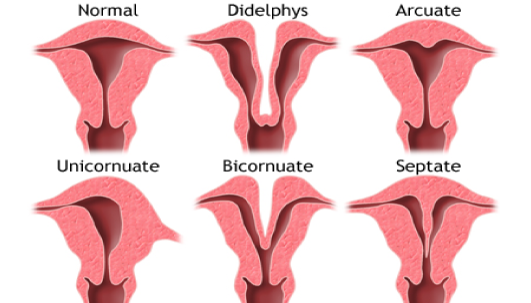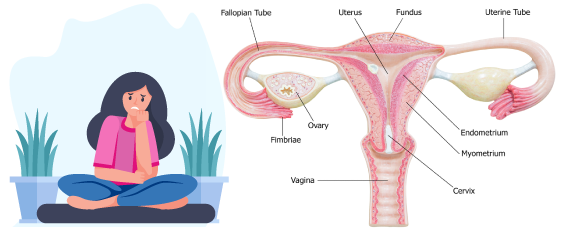Congenital Reproductive Tract Abnormalities In Women hospital in kukatpally
Congenital abnormalities in the reproductive tract are developmental issues in the female reproductive tract and its different parts, such as fallopian tubes, ovaries, cervix, and vagina. It occurs because of missing genes in the genetic code of a woman. However, it can also happen to women who do not have a genetic abnormality. Unlike other congenital abnormalities, which are visible at birth, these conditions do not see the light until the woman has her first period, gets pregnant, or tries to conceive. Most times, they are accompanied by genetic abnormalities of the urinary tract, spine, or kidneys.The proper development of a baby in the womb is the culmination of many factors. And many factors obstruct the process. There is no definite cause that causes these defects, but certain risk factors contribute to the abnormality.
They are:
- Heredity
- Using certain drugs during pregnancy
- Exposure to radiation
- Chemical factors
- Hormonal imbalance
There are many types of congenital reproductive tract disorders
- Abdominal or pelvic pain
- Abnormal and irregular menstrual bleeding
- Discomfort during sex
- Irregular development of labia
- No opening in the genital area
- Difficulty in getting and staying pregnant

Types of congenital reproductive tract disorders
Abnormalities in the external genitalia- improper development of labia and clitoris
Hymen abnormalities–Includes imperforate hymen, which blocks the vagina, obstructing the flow of period blood.
Mayer-Rokitansky-Kuster-Hauser (MRKH) syndrome- Missing parts of the internal reproductive organs

Congenital Reproductive Tract Abnormalities In Women hospital in kukatpally
Uterus abnormalities–Includes malformed uterus and cervix
Ovarian abnormalities–Having an extra ovary or extra tissue attached to the ovary
Vaginal abnormalities–Having no vagina or blocked vagina
Diagnosis and Tests–Apart from regular tests like blood tests, urine examination, and physical examination, the diagnostic tests include imaging tests such as MRI scan, CT scan, and ultrasound tests. In some instances, the doctor might suggest laparoscopy to take a closer look at the organs affected.
Treatment
Surgery is the only option for genetic abnormalities of the reproductive tract. Doctors would correct these abnormalities by either using a laparoscopic procedure or remove the organs using a hysterectomy procedure.

